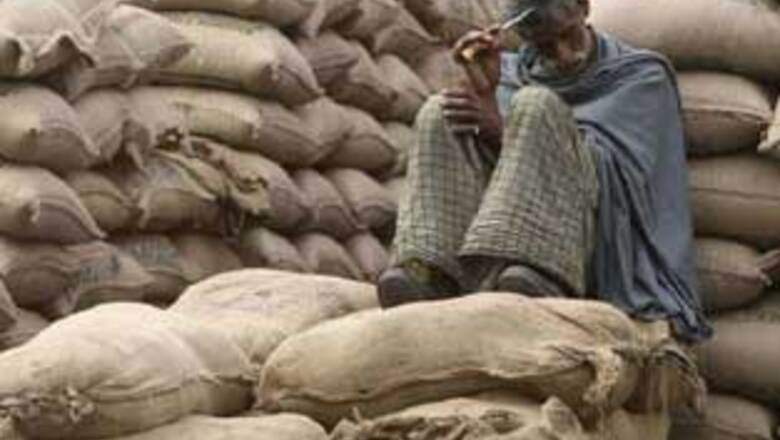
views
New Delhi: India's headline inflation in January accelerated to its fastest pace in more than a year, putting more pressure on the Reserve Bank of India (RBI) to raise borrowing rates to check rising price pressures after it already raised banks' reserve requirements in January.
But analysts say the RBI’s next move is expected only after the February 26 budget and could depend if the government starts to roll back its stimulus measures.
The wholesale price index rose 8.56 percent in January from a year earlier, its highest since November 2008 and accelerating from a 7.3 percent gain in December, data showed on Monday.
The reading beat analysts' forecast of an 8.2 percent annual rise in a Reuters poll.
The rise was driven by a 17.4 percent jump in food prices, which rose on weak monsoon rains and flooding from last year.
Inflation in manufacturing picked up to 6.55 percent from about 5 percent in December, a sign that inflationary pressures were spreading to other sectors of the economy.
The RBI is widely expected to raise borrowing rates at its April review after it surprised markets with a stronger-than-expected rise in banks' cash reserve requirements in January.
A higher-than-expected government borrowing in the budget might hold off the central bank from raising rates as it would push up borrowing costs.
RBI Governor Duvvuri Subbarao also said over the weekend the large government borrowing influences monetary policy.
The government completed its market borrowing of 4.51 trillion ($97 billion) for the current fiscal year to end-March early this month and the RBI expects its gross market borrowing next year to be slightly higher than this year.
In January, the RBI had raised the wholesale price inflation forecast for the current year to end-March to 8.5 percent from 6.5 percent with an upward bias earlier.















Comments
0 comment